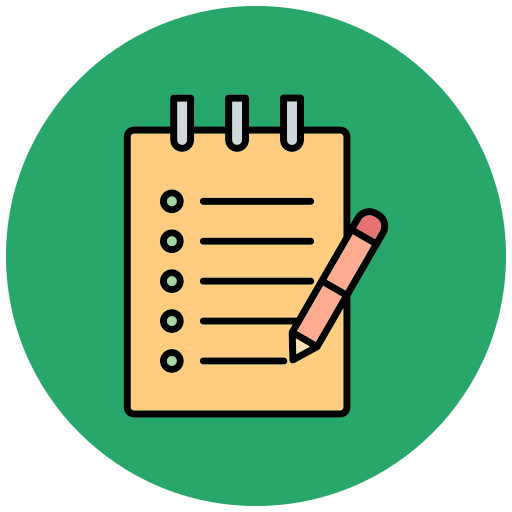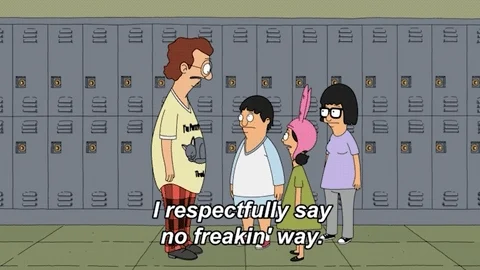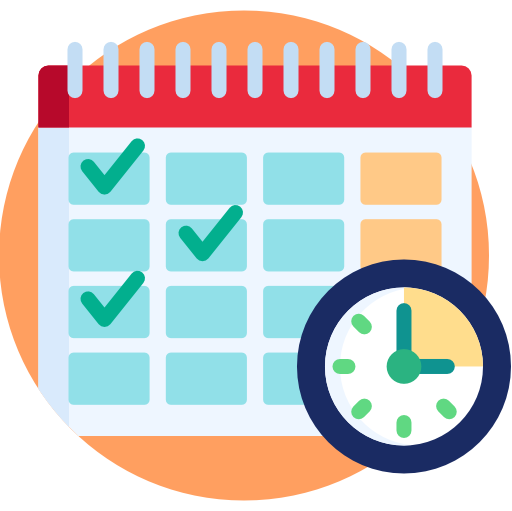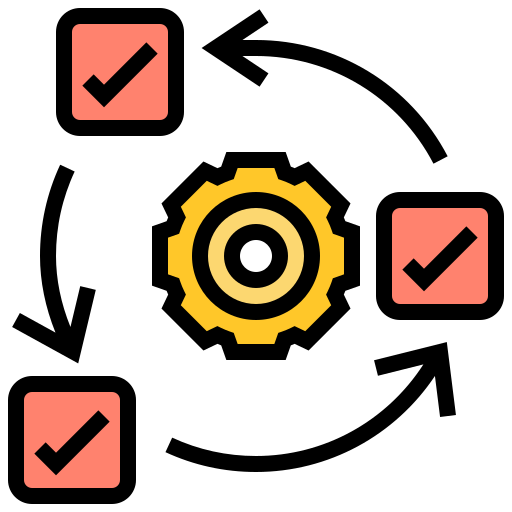Do you think about work, even during your time off? I totally get it!
As a former educator, I worked 75 hours a week to meet job requirements, often at the expense of my personal life.
Fortunately, I learned strategies that allowed me to maintain a healthy work-life balance.
Let's talk about how you can thrive in your career while living your best life outside of it!
 Photo by Jason Hogan on Unsplash
Photo by Jason Hogan on Unsplash1. Prioritize Your Daily Tasks

Identifying and focusing on important daily tasks will help you stay organized and feel more relaxed by the end of the day.
Create a daily to-do list. There are free online resources for task management, but a physical planner will work just as well.
Try the ABCDE method!
When writing your daily to-do lists, try using the ABCDE method to determine the priority of your tasks.
A. Very important: Urgent tasks you must complete ASAP to avoid large consequences.
B. Important: Tasks you must complete on time for long- or medium-term goals.
C. Nice to do: Tasks you should complete but aren't essential to your short-term goals.
D. Delegate: Tasks you can assign to others.
E. Eliminate: Tasks that have minimal impact on your objectives and may be removed.

Let's practice!
Using the ABCDE method, how would you match the numbered tasks with their appropriate letters in the method?
Catch up on emails
Prepare for a job interview happening tomorrow
Watch the new TV series that just came out
Pick up groceries
Review notes for a big presentation at the end of the week
A. Very important
B. Important
C. Nice to do
D. Delegate
E. Eliminate
Quiz
Select the correct answer:
2. Learn to Say No
Your time is precious!
Mastering the art of saying no to additional commitments that don't align with your goals will help free up time for things that really matter to you.
Although it may be challenging at first, the benefits are worth it! Just remember to keep it professional.

Scenario
Michael's colleague asks if he's available to help with another project, but Michael is already swamped with his own work. How should he respond?
A. I need to check my schedule first, but I'll let you know later.
B. I'd love to, but I won't be able to give this project the attention it deserves because of my current workload.
C. I don't have the capacity to help right now, but I'd be more than happy to help you review the project at a later time.
D. I'm not able to help at the moment, but I suggest you reach out to another team member and see if they can help.
Quiz
Select all that apply:
3. Ask for Help and Delegate When Possible

Trying to do everything on your own can be exhausting. In my career as an educator, I learned my team was a valuable resource. I spent hours each week creating teaching materials until my team reminded me I could simply ask for help.
Delegating tasks to lighten your workload can foster trust and strengthen your relationships with colleagues. When delegating, clearly communicate your needs and expectations.
4. Set Clear Boundaries with Colleagues and Clients
When I stopped responding to emails from parents and colleagues outside of working hours, I felt more relaxed at home and was better prepared for work the next day.
Communicate your availability to colleagues and clients — and stick to it!
This approach will help you set clear expectations and maintain a healthy work-life balance. Being consistent will reinforce these boundaries and encourage others to respect your time.

5. Disconnect Yourself

We're always one text, one email, one phone call away...so how can we effectively unplug from work?
Remove temptations!
Here are some things you can do to let yourself relax and recharge:
Turn off work devices
Log out of work accounts on personal devices
Set your status to offline
Use "Do Not Disturb" settings

Scenario
Joanna is a manager. She's out with friends, but she's checking her emails throughout the night. Despite being physically present, she's unable to get her mind off work. What can Joanna do to improve her work-life balance?
A. Sign off her work accounts after designated work hours.
B. Check her emails briefly throughout the night to stay informed, without getting too distracted.
C. Use "Do Not Disturb" features on her email.
D. Set a priority filter on her email inbox that delays non-urgent emails.
Quiz
Select all that apply:
6. Schedule "Me Time" and Hangouts

By following the suggestions above, you'll create more free time for yourself. To further reinforce your work-life boundaries, try scheduling personal time in your calendar.
Hang out with friends and family, do a spa night, exercise...participate in any activity that's just for you! These scheduled times should be non-negotiable — treat them like any other important appointment, just like a doctor's visit!
7. Take Care of Your Health
Sacrificing your well-being will affect your work performance sooner or later. Putting work above your own needs can lead to job dissatisfaction, burnout, and decreased productivity.
You can still accomplish your professional goals without compromising your health!
Prioritize your health by:
Eating well
Getting plenty of sleep
Exercising
Drinking lots of water!
 Photo by GMB Fitness on Unsplash
Photo by GMB Fitness on UnsplashTake Action

Your feedback matters to us.
This Byte helped me better understand the topic.
